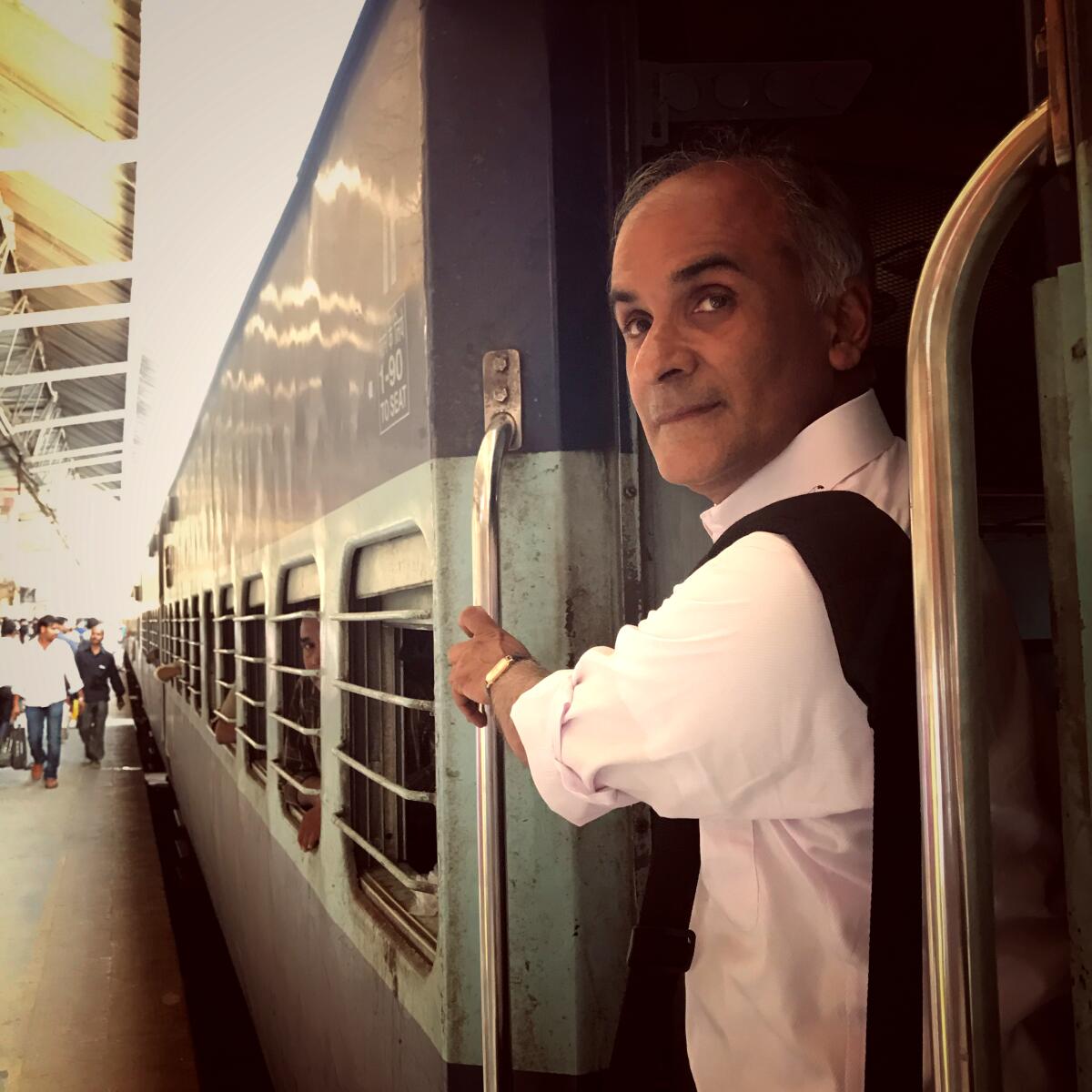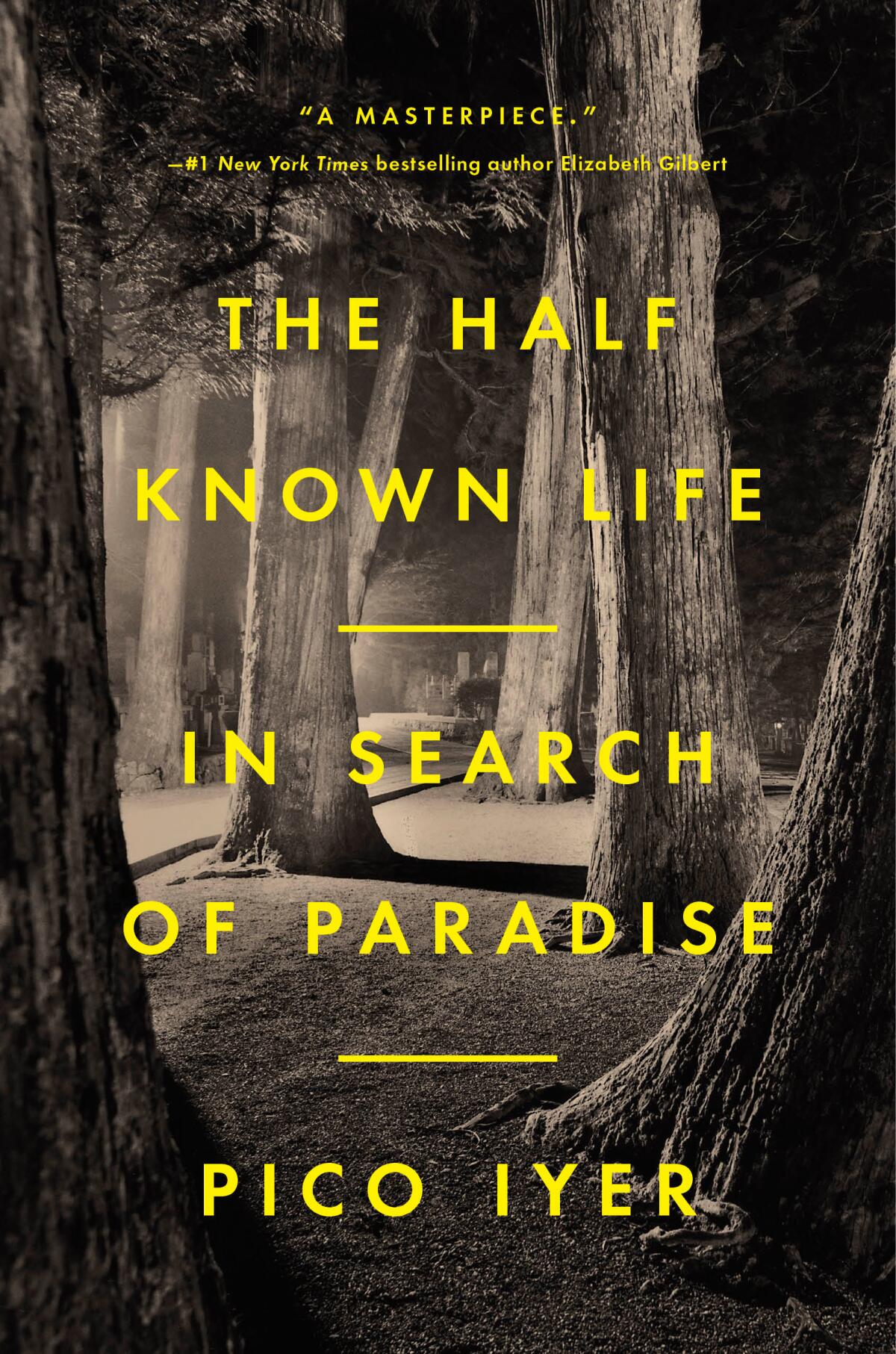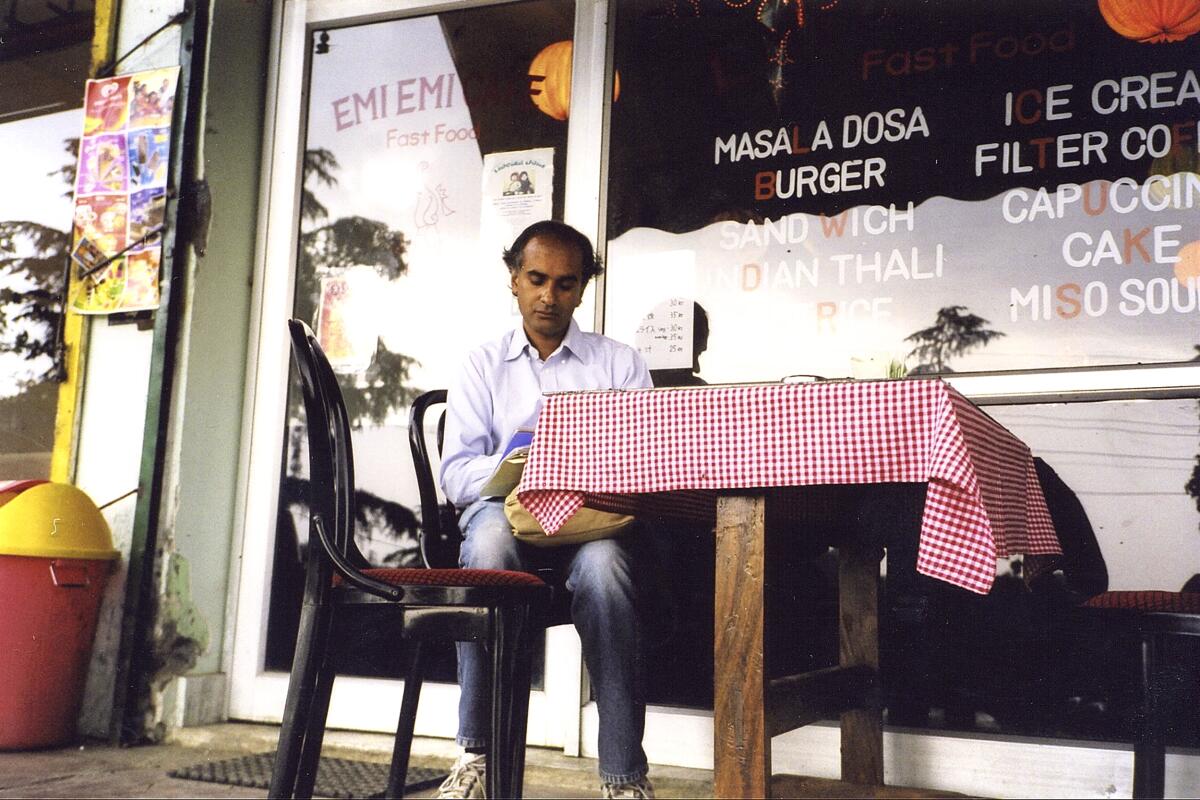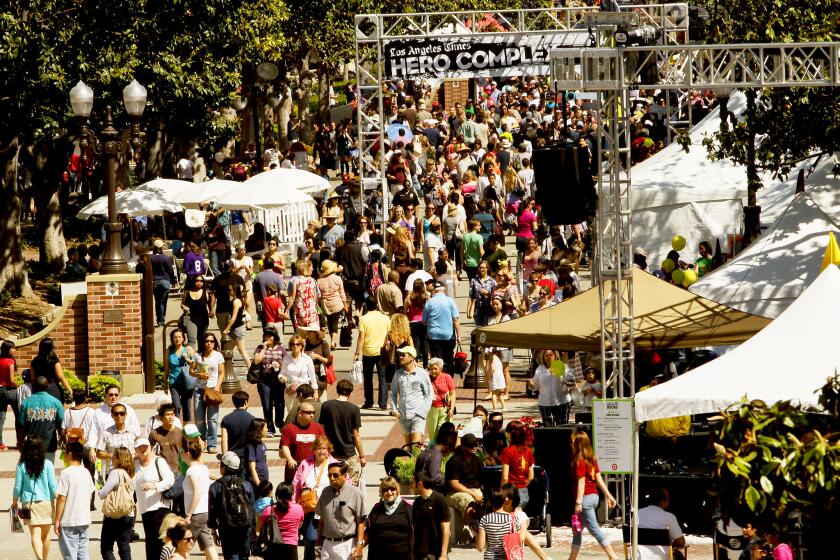How COVID lockdowns drove travel writer Pico Iyer to think of paradise

- Share via
On the Shelf
The Half Known Life: In Search of Paradise
By Pico Iyer
Riverhead: 240 pages, $26
If you buy books linked on our site, The Times may earn a commission from Bookshop.org, whose fees support independent bookstores.
Like many of us, Pico Iyer had a lot of time on his hands during the pandemic. The author of more than a dozen books of far-flung travel — including “Video Night in Kathmandu,” “Falling Off the Map” and “The Global Soul” — suddenly found himself holed up for long stretches at his mother’s house in Santa Barbara.
It wasn’t completely out of character. Though Iyer has made a career out of almost perpetual motion, he’s also no stranger to sitting still; he frequents a monastery in Big Sur and has delivered a popular TED Talk on “The Art of Stillness.” In some ways the pandemic was an ideal opportunity for him to stop and reflect on a lifetime of crisscrossing the globe.
“I was getting to stay in one place much longer than I normally would,” Iyer explains over Zoom from his “deepest home” outside Kyoto, Japan, as the sun rises on a clear winter morning. “So it was almost a perfect time to think about 40 years of travel, 48 years of talking to the Dalai Lama, 31 years of spending time with Benedictine monks. How does it all come together?”
His new book, “The Half Known Life: In Search of Paradise,” is a retrospective look at his travels, readings and encounters through the prism of the idea of “paradise”: What is it and where is it (on the map or in the mind)? Why are so many chimerical Shangri-Las fraught with conflict? And whose version of paradise are we talking about anyway?
As the L.A. Times Festival of Books turns 25 with a virtual fest, the author recalls how its tight-knit community helped obliterate his L.A. cliches.
Iyer, perhaps more than any other writer, is perfectly positioned to navigate these paradoxes. But he had some guides of his own to help lead the way. “Like many people during the pandemic, I was spending long afternoons with Proust and Melville, Milton and others. So, suddenly, they were the ones whispering in my ear,” he says. Herman Melville in particular — one of the “great explorers of inwardness, mystery and the inexplicable” — became a companion spirit, traveling some of the same paths as Iyer.

“I think of Melville as the laureate of the half-known spaces — What is God? What is the Devil? Do they exist? What’s out there? — so he was a good presence to walk along my side,” Iyer continues. “And of course he went to the Holy Land: There he is in Jerusalem, reacting violently against it but going day after day to the Church of the Holy Sepulchre, as I did. And finding symmetries everywhere, which became a central theme in this.”
Iyer’s own experience of Jerusalem, which he describes as “a riot of views of Paradise overlapping at crooked angles,” forms the crux of the book. But it’s not the only “promised land” he found threatening to erupt in violence and repression: There’s Iran, where the notion and word for paradise first evolved; North Korea, with its state-sponsored “People’s Paradise”; Belfast and Kashmir, caught in the crosshairs of sectarian divisions. Nor is it any surprise that Iyer’s journey ends in the realm of the afterlife — eternal paradise — visiting cemeteries in Sri Lanka and Japan (where they’re called “cities of tomorrow”) and the sacred Indian city of Varanasi.
Death is a recurring presence in the book, weighing heavily on Iyer’s mind in the time of COVID. “The pandemic really brought this home: that our vision of the world is incomplete unless it incorporates death,” Iyer says. “This is probably one of the first books I’ve written where death is right at the center of it.”
There was a more personal aspect to his focus on mortality. The book is dedicated to his mother and “fellow traveler,” Nandini Iyer, who died in 2021. “I was sitting in my mother’s house in Santa Barbara while I was writing this, and she was in her last 15 months of life,” he says. “All of us, I think, living so close to death during the pandemic, were thinking about how to live and what our lives have amounted to and how do we come upon a better world or better self.”
The L.A. Times Book Clubs reads ‘Letter to a Stranger,’ a new collection that celebrates the serendipity of chance encounters.
In several chapters, Iyer recalls his mother in idyllic scenes from her life — summer escapes to Kashmir, domestic bliss in Oxford and California (both his parents were scholars). Iyer, who spent his youth shuttling between these two poles, has a hard time balancing their opposing worlds himself: Oxford, a gray and austere land of the mind rooted in the past, and 1960s California, freewheeling and hedonistic, “a place of infinite possibilities and long horizons.”
His exposure to such places gave Iyer a fresh perspective from the start: “As a little boy of Indian parents with an English accent and an American green card, I thought, ‘Well, I’m not confined to any one way of looking at the world.’” His travel writing captured that openness. “Here I am, someone from everywhere and nowhere,” he remembers thinking. “I’m not entirely inside or outside when I write about Varanasi or Kashmir. And I think that’s sort of the promise of modern culture in the 21st century.”

“The Half Known Life,” however, represents something of a new approach. It’s a book of reflection — even meditation — on ideas and destinations, intentionally “liberated from chronology.” “I’m trying to show these places out of time in some way,” Iyer explains. “Almost every chapter is a kind of parable.”
This contemplative turn is personal, but it also jibes with larger social changes — not just the pandemic but also the increased ubiquity of the camera. “I think the recording of travel has to be much more internal now,” he argues. “And a writer has to claim those spaces that multimedia or a camera can’t catch, which have to do with pauses and nuance and memory and the internal journey or progression.”
This book, he says, has been a way of putting his “life in order,” seeking a throughline between his explorations of inner and outer worlds. He pauses to consider what he’s taken away from it. One thing he knows is how little he knows — and that’s the point.
“Thomas Merton on a frequent flier pass” is how Indian writer Pradeep Sebastian once described renowned travel writer Pico Iyer, and it remains my favorite, most perfect and pithy quote about him, ever.
“Like many people, in my 20s I thought knowledge was going to be my weapon, guiding me through the world,” Iyer says. “But probably halfway through my life, I thought, actually, wonder, humility, not knowing, is really going to be my one asset in a world that’s by definition unknowable.”
Tepper has written for the New York Times, Vanity Fair and Air Mail, among other places, and is curator of international literature at City of Asylum in Pittsburgh.
More to Read
Sign up for our Book Club newsletter
Get the latest news, events and more from the Los Angeles Times Book Club, and help us get L.A. reading and talking.
You may occasionally receive promotional content from the Los Angeles Times.












